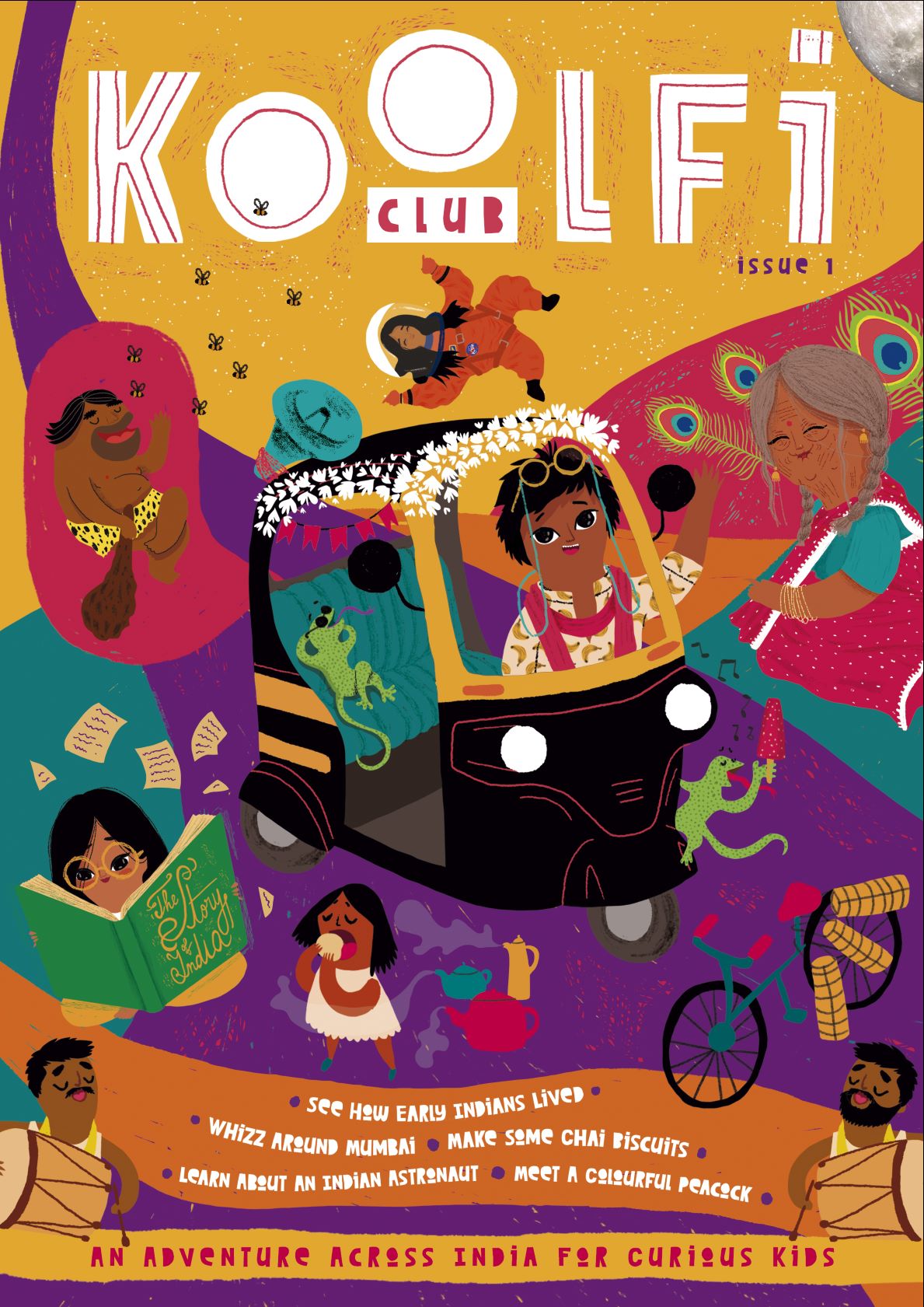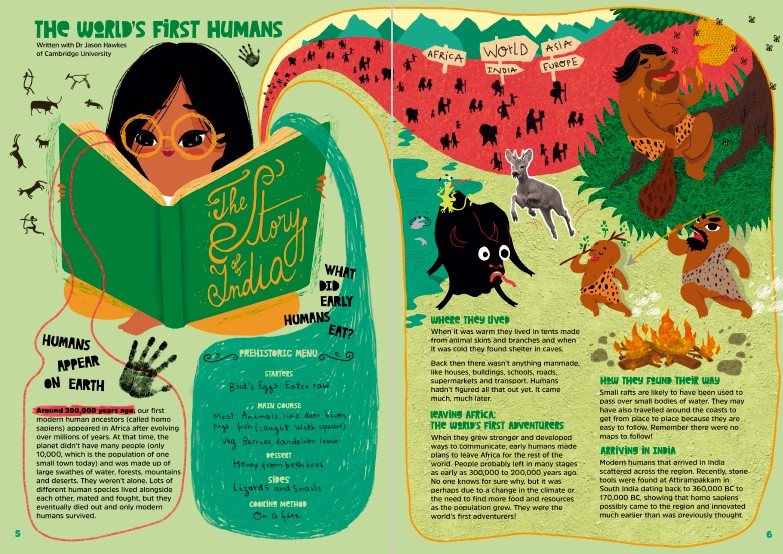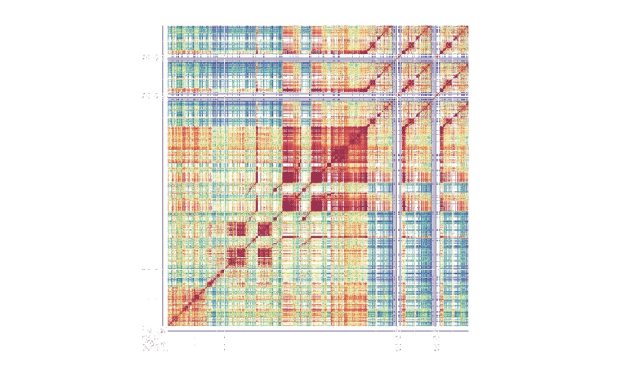'Koolfi Club' magazine, teaching UK children about South Asian culture
- 17 December 2020
- 4 minutes
A new and exciting bi-monthly magazine is teaching children in the UK about South Asian culture through vibrant pages full of history, archaeology and education led by experts, including Caius External Director of Studies in Archaeology Dr Jason Hawkes.
The magazine, called Koolfi Club, focusses on the history, arts and culture of India and is the first of its kind in the UK. Jason first joined the project in February following a request from the London-based Founder and Editor Nishika Patel. Since then, he has consulted on the history and archaeology content in the magazine, and the first issue has just been released via the Koolfi Club website.
 “Every issue is packed full of different topics, with a mix of stories, interactive activities and educational games that slowly and cumulatively take the reader on a journey through the full gamut of Indian cultures, which are brought to life with fantastic writing and amazing artwork. As a magazine for children, I really can’t recommend it enough.”
“Every issue is packed full of different topics, with a mix of stories, interactive activities and educational games that slowly and cumulatively take the reader on a journey through the full gamut of Indian cultures, which are brought to life with fantastic writing and amazing artwork. As a magazine for children, I really can’t recommend it enough.”
Jason believes the magazine is “profoundly important” for a number of reasons. “The first,” he said, “is that it provides teachers, education professionals and parents with an incredibly valuable (and fun!) resource. While lots of local education authorities, schools, education trusts and academy chains do an excellent job in teaching children about the world and cultural understanding, it is precisely these more arts and humanities-based aspects of the curricula that are the first ones to be axed when budgets are cut and tough decisions have to be made in the prioritisation of resources and what is taught.”
“The events of this year have added to the strain of schools’ capacities to teach across the curricula and that is why it is enormously welcome to have magazines like this that can complement and enhance our children’s learning experience,” said Jason.
“Equally,” Jason explained, “the magazine provides a timely and valuable insight into something that is central to our conceptions of what it means to be ‘British’, ‘English’ or ‘South Asian’ in today’s society” – a topic that features heavily in Jason’s research into South Asian history and archaeology. “As an archaeologist I am only too aware of how the past, and our ideas of the past can be manipulated to suit modern political and ideologically driven agendas. The implications of this are profound and aren’t hard to see - even the most surficial survey of twentieth century history presents evidence of this. There is a direct correlation between how we might feel and think about another ‘people', culture or nation and how we perceive ourselves and our place in the world. So, much of what it ‘means’ to be British, or South Asian within the United Kingdom, or South Asian (be that Bangladeshi, Indian, Nepali, Pakistani or Sri Lankan) within an increasingly global world is informed by a sense of our past and where we have come from. So if my archaeological and historical research can provide evidence and perspective to add nuance to these conversations, then I feel that my research is having far more ‘impact’ than highly cited articles read only by the few hundred people in my field.” Jason was, however, quick to point out that the Koolfi Club magazine “has no ulterior motive or hidden political agenda to inculcate the youth of today with any sort of ideological belief”, instead it is a children’s magazine with the purpose of entertaining and educating.
 So what can children learn from Koolfi Club? Jason said “A lot! Every issue is packed with a great deal of information about Indian history, arts (music, song, dance, painting and sculpture), languages, literatures and religions. The breadth of Indian culture presented in the magazine is so vast that there is more than enough scope for new content in each issue.” The magazine is aimed at 7-12 year olds and although it currently focusses on India and Indian culture, there are plans to develop the scope to include other parts of South Asia (Bangladesh, Bhutan, Nepal, Pakistan and Sri Lanka) over time. Jason said, “Everything is brought to life in a very creative, fun and engaging way. Each section is not only brimful of information – some really quite complex concepts as well – that will expand children’s knowledge, but this information is also explained so that it makes sense, and is presented in such a way so as to make it accessible, fun and easy to engage with.”
So what can children learn from Koolfi Club? Jason said “A lot! Every issue is packed with a great deal of information about Indian history, arts (music, song, dance, painting and sculpture), languages, literatures and religions. The breadth of Indian culture presented in the magazine is so vast that there is more than enough scope for new content in each issue.” The magazine is aimed at 7-12 year olds and although it currently focusses on India and Indian culture, there are plans to develop the scope to include other parts of South Asia (Bangladesh, Bhutan, Nepal, Pakistan and Sri Lanka) over time. Jason said, “Everything is brought to life in a very creative, fun and engaging way. Each section is not only brimful of information – some really quite complex concepts as well – that will expand children’s knowledge, but this information is also explained so that it makes sense, and is presented in such a way so as to make it accessible, fun and easy to engage with.”
Jason’s time at Caius has also contributed “significantly” to his efforts on the magazine. He said, “As an external Director of Studies I have the privilege of being able to dine with Fellows once a week in College (or did, prior to Covid), and in the process of doing so I had the good fortune to meet some wonderful people engaged in all sorts of different research fields – from contemporary social geography in inner-city London, modern history and languages, classics, clinical medicine and theoretical physics. Conversations with leading minds across the schools of research have only served to help crystallise the relevance of my research and value of the magazine to contemporary society.”
Those who subscribe now to this vibrant and engaging magazine will be part of its journey from the very beginning as the magazine has only just launched. You can find out more on the Koolfi Club website.


